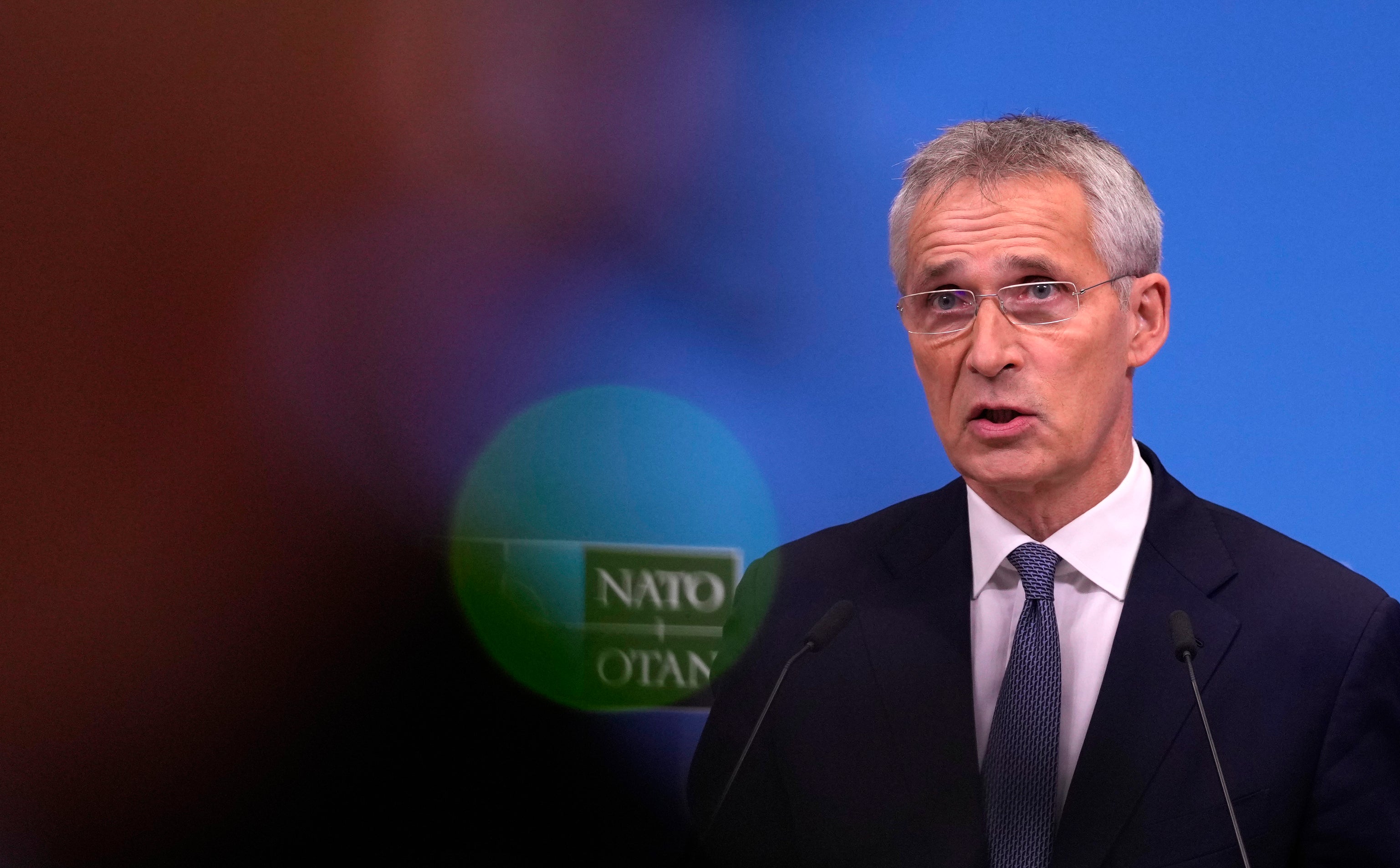Ukraine-Russia crisis: What to know about rising fear of war
The Russia-Ukraine crisis has entered another day that is expected to be packed with diplomatic efforts to prevent the simmering tensions from boiling over into war

Your support helps us to tell the story
This election is still a dead heat, according to most polls. In a fight with such wafer-thin margins, we need reporters on the ground talking to the people Trump and Harris are courting. Your support allows us to keep sending journalists to the story.
The Independent is trusted by 27 million Americans from across the entire political spectrum every month. Unlike many other quality news outlets, we choose not to lock you out of our reporting and analysis with paywalls. But quality journalism must still be paid for.
Help us keep bring these critical stories to light. Your support makes all the difference.
The Russia-Ukraine crisis entered another day that is expected to be packed with diplomatic efforts to prevent the simmering tensions from boiling over into war.
Ukrainian President Volodymyr Zelenskyy is hosting Turkish President Recep Tayyip Erdogan for talks in Kyiv while Russian President Vladimir Putin meets his Argentinian counterpart Alberto Fernandez in Moscow.
NATO Secretary-General Jens Stoltenberg, meanwhile, voiced concerns that Russia continues to build up troop numbers along Ukraine's borders, including in Belarus.
Here are things to know Thursday about the international tensions surrounding Ukraine, which has an estimated 100,000 Russian troops massed along its borders.
NATO CHIEF: ‘SIGNIFICANT’ RUSSIAN TROOP BUILDUP IN BELARUS
Stoltenberg told reporters at NATO headquarters that Moscow has now deployed more troops and equipment to Belarus that at any time in the last 30 years.
Russia now has more than 100,000 troops stationed near Ukraine’s northern and eastern borders, raising concern that Moscow might invade again, as it did in 2014. Russian officials deny that an invasion is planned.
Stoltenberg again called on Russia to “de-escalate,” and repeated warnings from the West that “any further Russian aggression would have severe consequences and carry a heavy price.”
The NATO chief said Russian forces in Belarus are likely to rise to 30,000 including special forces and supported by fighter jets and missiles.
Russian Defense Minister Sergei Shoigu arrived in the Belarus capital, Minsk, on Thursday to monitor preparations for major Russia-Belarus war games that are expected to take place Feb. 10-20.
— By Lorne Cook in Brussels, and Dasha Litvinova in Moscow.
___
DIPLOMATIC EFFORTS TO DEFUSE CRISIS
Turkish President Recep Tayyip Erdogan is visiting his Ukrainian counterpart in Kyiv, saying he wants to play his part in establishing "an atmosphere of peace and trust in our region.”
Erdogan also underscored Turkey’s support for Ukraine’s territorial integrity, calling the nation a “strategic partner and neighbor.”
“As a Black Sea nation, we invite all sides to exercise restraint and dialogue in order to bring peace to the region,” Erdogan said.
Meanwhile, Putin is meeting with Argentinian President Alberto Fernandez in Moscow and will speak by phone to French President Emmanuel Macron, who had a call Wednesday night with U.S. President Joe Biden.
Macron will speak to Putin, then Ukrainian President Volodymyr Zelenskyy, according to Macron's office.
— By Suzan Fraser in Ankara, Turkey, and Angela Charlton in Paris.
___
PUTIN HEADING TO WINTER OLYMPICS
After his meeting with Fernandez, Putin heads Thursday night to Beijing to bolster Moscow’s ties with China and coordinate their policies in the face of Western pressure.
Ice hockey fan Putin will also attend Friday's opening ceremony of the Winter Olympics.
His talks with Chinese President Xi Jinping on Friday will mark their first face-to-face meeting since 2019 and will help cement a strong personal relationship that has been a key factor behind a growing partnership between the two former Communist rivals.
Yuri Ushakov, Putin’s foreign affairs adviser, said the visit would mark a new stage in the Russia-Chinа partnership that he described as a “key factor contributing to a sustainable global development and helping counter destructive activities by certain countries.”
Ushakov emphasized that China backs Russia in the current standoff over Ukraine.
— By Vladimir Isachenkov in Moscow.
___
Follow all AP stories on Russia and Ukraine tensions at https://apnews.com/hub/russia-ukraine
Subscribe to Independent Premium to bookmark this article
Want to bookmark your favourite articles and stories to read or reference later? Start your Independent Premium subscription today.